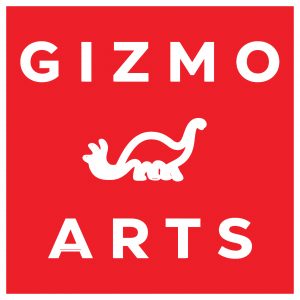…Son, yáázh, mijo…

My favorite things to be called r Son, yáázh, mijo–they remind Me of when u wove ur fingers thru My hair..meanwhile these poems bloomed..bury Me with these poems..when i wake again the flowers will call me Son, yáázh, mijo and ill remember when u wove ur fingers thru My hair
Eric-Paul Riege
September 6 — September 27[2k19]
OPENING RECEPTION: September 6 from 6:00 – 8:00 pm
CLOSING RECEPTION & PERFORMANCE: September 27 from 6:00 – 8:00 pm
Where is My place to find solace? I think it lives in my process. My hands make make make and create create create to tell some sort of story that lets me know how much I love you. Where is My vulnerability and honesty lay? I think it lives in my actions. When my mind tells my body to move it’ll move. When my mind tells my body to see it’ll see. When you present a form of yourself to Me I trust myself enough to allow you in and see some form of empathy between us. I fell in love with you before we met and these objects materialize that. I thank you for creating these with Me.
Eric-Paul Riege (Diné) (b. 1994, Na’nízhoozhí, Gallup, New Mexico) is a weaver and fiber artist and outsider poet finding presence in his mind, body, and beliefs through performance, installation, woven sculpture, collage, and wearable art. For Riege his weavings pay homage and link him to generations of women weavers in his family and exist as living things that aid him in generating sanctuary spaces of welcome. Riege holds a BFA in Art Studio and Ecology from the University of New Mexico. His work has recently been exhibited in the SITElines.2018 Biennial at Site Santa Fe, NM, the Navajo Nation Museum in Window Rock AZ, the National Hispanic Cultural Center in Albuquerque, NM, and The Institute of Contemporary Art Miami in Miami, FL.
Black Hole/Atomic City (State of Decay)
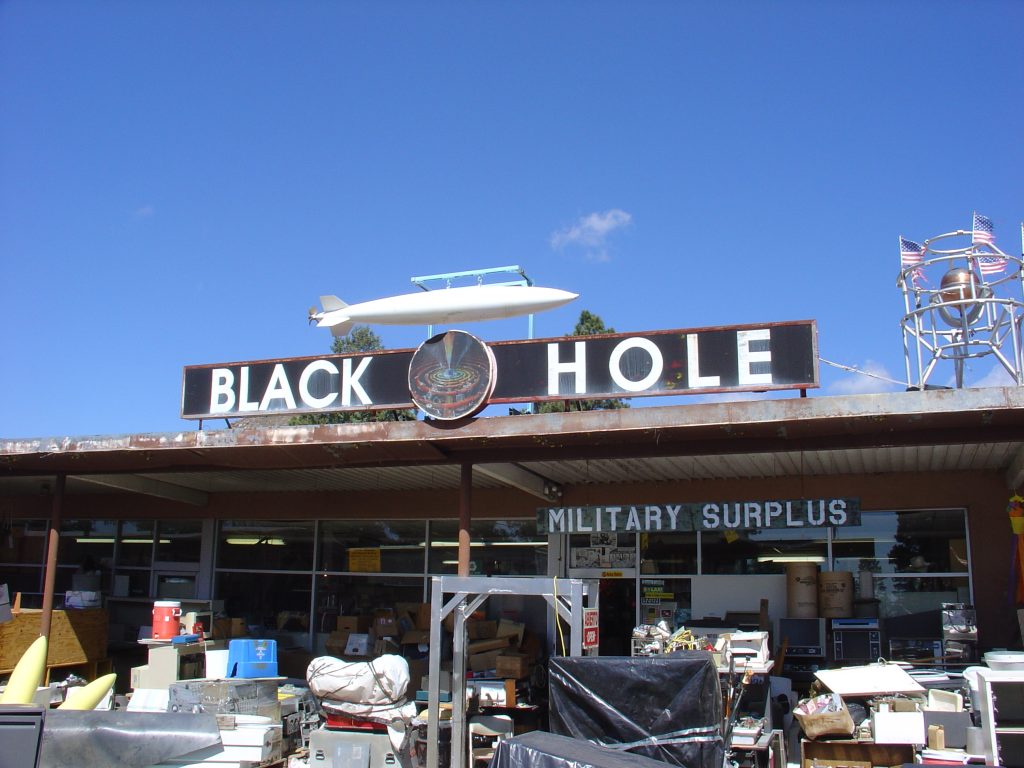
The Black Hole in Los Alamos, NM, 2009. Photo by Jeff Keyzer
Black Hole/Atomic City (State of Decay)
August 2 – 30, 2019
OPENING RECEPTION: August 2, 6-9pm
Black Hole/Atomic City (State of Decay) is an exhibition dedicated to alternative stories related to “the nuclear business” in New Mexico since the dawn of the Anthropocene/Trinity test near Tularosa in July 1945. The combined burden of nuclear byproducts and waste that decays over tens of thousands of years weighs heavily on New Mexico, a “national sacrifice zone.” The show will be on view until August 30.
Impacts that largely affect Indigenous and rural communities from nuclear weapons and their production in New Mexico and around the world, are not featured in the celebratory story of the Atomic Age promoted by Los Alamos, set for the commemoration in 2020 of the 75th Anniversary of the Trinity Test and the bombings of Hiroshima and Nagasaki, the first and only cities to be destroyed with atomic weapons.
What is the impact of the theft and decimation of sacred lands? How have involuntary radiation exposures from atomic explosions and contamination from mining and milling of uranium affected generations? What are the ongoing threats from transportation and storage of radioactive waste?
This will be one of numerous efforts to highlight alternative views of our nuclear world during the lead up to the Anniversary of the Nuclear Age. The Black Hole, a Los Alamos business known world-wide for recycling equipment and materials from the Los Alamos Scientific/National Laboratory, was owned by anti-nuclear activist Edward Grothus, who died in 2009. Artist and activist Barbara Grothus is the lead organizer of the project.
Artists include: Josh Atlas, Brandi Beckett, Mitch Berg, Anna Bush Crews, Sabrina Gaskill, Barbara Grothus, Sheri Inez deLopaz Kotowski, Sto Len, Melanie Mills, Santiago Perez, Thomas Powell, Rachele Riley, Yasuyo Tanaka, Jessi Walsh, Nora Wendl
This exhibition was made possible in part by the Fulcrum Fund. The Fulcrum Fund is an annual grant program, created and administered by 516 ARTS as a partner in the Regional Regranting Program of The Andy Warhol Foundation for the Visual Arts.
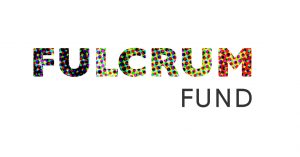

Ananke by Viola Arduini
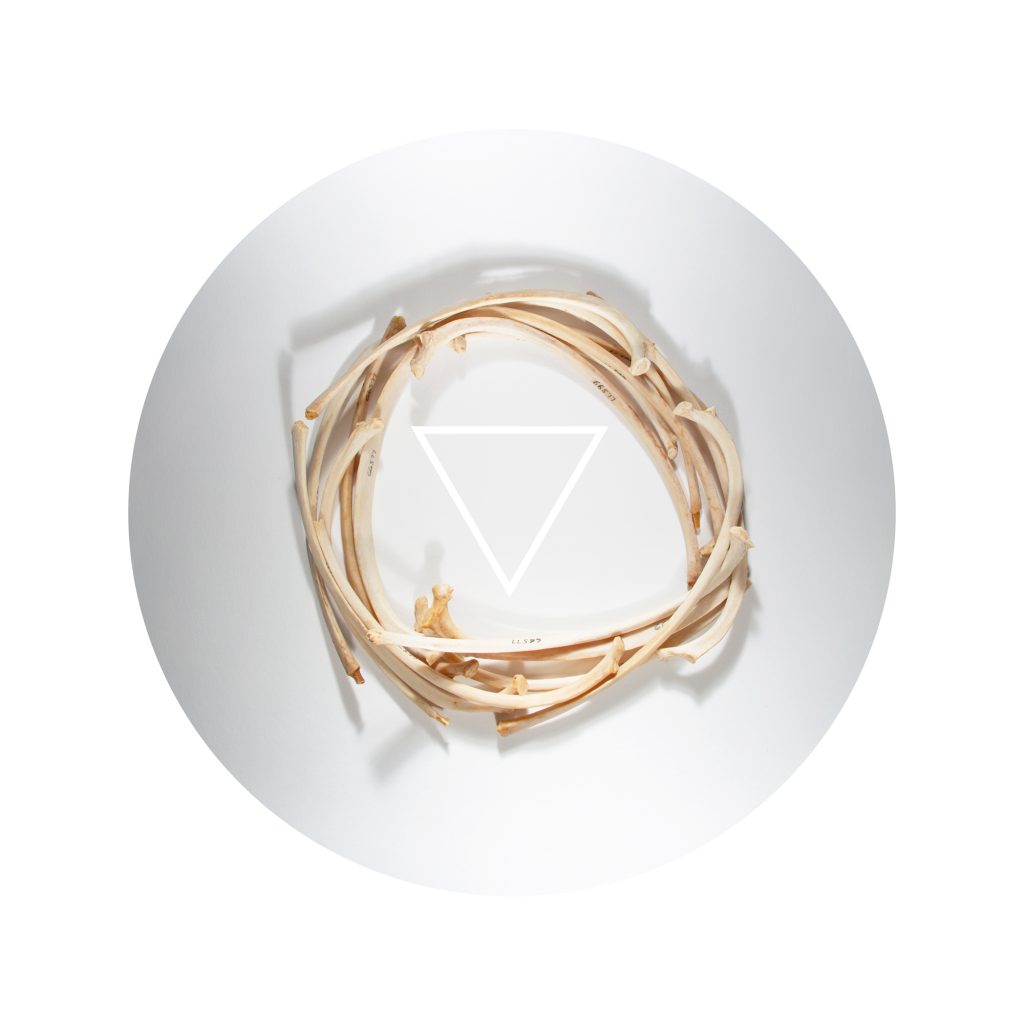 Ananke
Ananke
Viola Arduini
April 12th – 26th, 2019
Opening: Friday, April 12th, 6-9 pm
Closing: Friday, April 26th, 6-9 pm
Ananke, the Necessity, was considered one of the forces dominating nature and human fate in ancient Greece; even the gods were subjects to her; a mechanical force of chained events, reactions, given possibilities. In this exhibition, Viola Arduini explores and suggests a renewed understanding of the power of such force, while suggesting the necessity for change. Ananke is the mechanical, blind destruction humans are causing on the planet, yet Ananke is the need of a reaction.
Arduini’s creative practice investigates relationships formed by humans, animals, and technology, engaging in issues of biodiversity loss, promoting new forms of dialogue about coexistence.The impact of human activity on the planet is so enormous, cohabitation with other species seems impossible. Mixing languages and practices from both art and science, Ananke offers a space for questioning and promoting change regarding the current ecological crisis.
Arduini’s work narrates – through embodied aesthetic experience for the audience– stories that are just small enough to be felt and thought; yet are complex and open for generating new connections, feelings, and ideas. Embodiment becomes a tool through which stories and ideas are activated, a space for generating different views of extinction and cohabitation; ideas of kinship, interspecies relationships and human presence become the ground for seed
ing different awareness and possibilities for new archetypes.
Exceptional Visual Artist Scholar
Ananke by Viola Arduini is a University of New Mexico MFA thesis exhibition that is part of Sanitary Tortilla Factory’s 2019 Exceptional Visual Artist Scholar (EVAS) series. The Exceptional Visual Artist Scholar series offers professional space for the culminating exhibition that defines the student’s launch into their profession as an artist. The series hopes to underscore exceptional artists attending regional institutions while highlighting Albuquerque’s historic connection to contemporary art practice.
Used to Know Me Now – Teena Lee Ryan

Used to Know Me Now
Teena Lee Ryan
Opening: Friday, March 22, 5-8pm
Closing: Friday, April 5, 5-8pm
My maternal family is from Appalachia. I am the third generation to be named after Confederate general Robert E. Lee. Not only was the double ‘e’ in my first name inspired by the general, but my middle name as well. Changing my name would be a meaningless gesture, rather I demolish, rewrite and reimagine my personal narrative, in the hope I can construct my own legends. I explore ritual, creation, destruction, fiction, the fallibility of memory and the transformation of identity. Through my work, I believe it is possible to originate and uphold my own story.
 Ritual, creation, destruction, and transformation are utilized to uncover my present self. I use these tools to conceive and fabricate my own story. A story that will exist as my legend, in the way I deem honest. What these works all share is an exploration of the embodiment of knowledge and experience. Most of the work is a ritualistic exploration of the ways that embodiment, which physicality weighs on the soul, is digested and lost, is ripped asunder, is a skeleton that harms as much as it helps. I make artifacts as ritual offerings to reclaim myself.
Ritual, creation, destruction, and transformation are utilized to uncover my present self. I use these tools to conceive and fabricate my own story. A story that will exist as my legend, in the way I deem honest. What these works all share is an exploration of the embodiment of knowledge and experience. Most of the work is a ritualistic exploration of the ways that embodiment, which physicality weighs on the soul, is digested and lost, is ripped asunder, is a skeleton that harms as much as it helps. I make artifacts as ritual offerings to reclaim myself.
Exceptional Visual Artist Scholar
Used to Know Me Now by Teena Lee Ryan is a UNM MFA Photo thesis exhibition and the first of two exhibitions in 2019 that is part of Sanitary Tortilla Factory’s Exceptional Visual Artist Scholar (EVAS) series. The Exceptional Visual Artist Scholar series offers professional space for the culminating exhibition that defines the student’s launch into their profession as an artist. The series hopes to underscore exceptional artists attending regional institutions while highlighting Albuquerque’s historic connection to contemporary art practice.
Collateral Damages
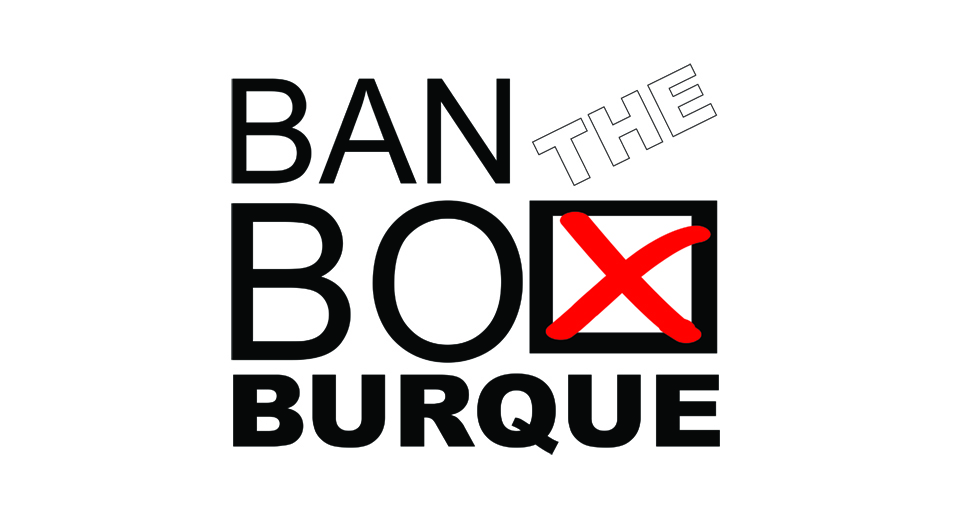
Collateral Damages
Friday, September 7th, 2018
6-9pm
Jeremy Adonis Carlson, sheri crider and Gary Sanchez will lead public participation notating the walls of the gallery with the collateral impacts of maligned policies of criminal justice on our local communities (focused on felony convictions- eviction from public housing, ineligibility for federal education loans and grants, and a ban from food stamp programs).Live screen printing by DRY MTN, poetry by Manuel Gonzalez and daughter . Large scale building projection & 200 free tacos (El Paisa Express)
Informed by SMART JUSTICE Campaign (ACLU) participants hope to shift criminal justice policy and build meaningful narratives that move criminal justice reform.
Project is a part of Our Town an Albuquerque City Wide project sponsored by the NEA.
